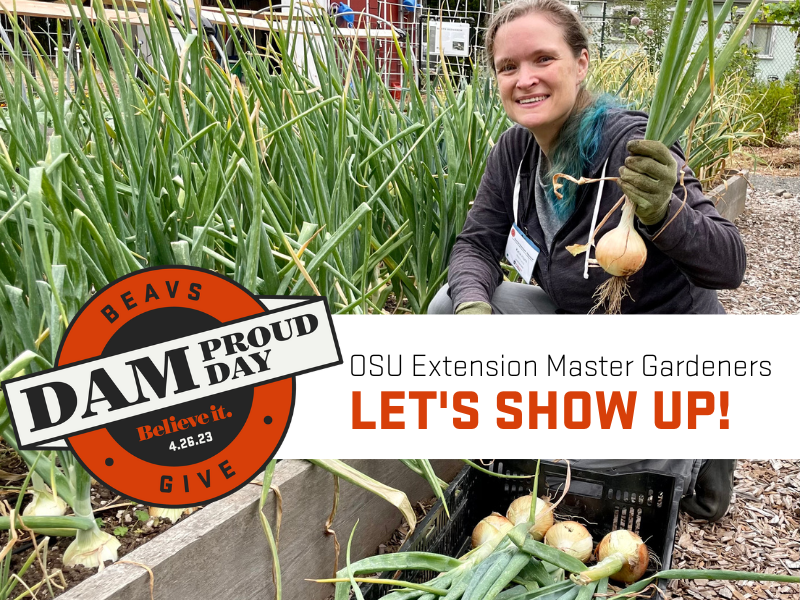Hello! This is your Winter Update from your statewide Growing & Belonging committee. Four times a year we publish on the program news blog, sharing our work, findings, and resources to help keep you informed and engaged in creating a local Master Gardener program and association experience that is one of growing and belonging.
Events
Thank you to the 75 Master Gardener volunteers, faculty, and staff who gathered last month to view Dirt! The Movie on Dr. Martin Luther King Jr.’s Day of Service. Dr. Gail Langellotto shared reflections on the movie and several Master Gardeners offered their thoughts on the movie as well. I encourage you to read your fellow Master Gardeners’ words in the comments section but will share here a bit of what Donna Leveridge-Campbell wrote:
Dirt! The Movie…resonated with me in so many ways, both in my long-held beliefs and gut feelings, and that there was much synchronicity with things I have read and taken to heart. For myself, I have been considering ways I can support the dissemination of this important information and world-view in order to bring about the much-needed changes to bring health to our soils and biomes, and to our human communities.
A quote from Robin Wall Kimmerer in her phenomenal book, Braiding Sweetgrass: Indigenous Wisdom, Scientific Knowledge, and the Teachings of Plants, that kind of sums up where I am at in my life these days is, “The most important thing each of us can know is our unique gift and how to use it in the world.” Another quote I love from this book is, “I taught my daughters to garden so that they would always have a mother to love them, long after I am gone.”
Read more of the thoughtful comments here.
Call for Participation
Do you or someone you know garden to connect to your culture? We would love to share your story. The Culture of Gardening storytelling site, a project of the Growing & Belonging committee, is a beautiful collection of photos and stories told in the gardener’s own words, of gardening to connect us to our heritage and foods specific to our own cooking. Please consider sharing your story or nominating a fellow gardener to be interviewed and featured. Our stories are powerful, healing, and insightful. Please email LeAnn LeAnn.Locher@OregonState.edu to be connected to the project: we promise to make it an easy and fun experience!
Resources You May Find Helpful
The work of Dr. Douglas Deur, associate research professor at Portland State University, focuses on the intersection between culture, place, and environment. He works closely with Native American knowledge holders to illuminate misunderstood environmental traditions, and more. Keeping It Living: Traditions of Plant Use and Cultivation on the Northwest Coast of North America tells the story of traditional plant cultivation practices found from the Oregon coast to Southeast Alaska.
Webinar series: Culturally Inclusive Teaching in the Garden. A six-part series from February – June exploring ways to celebrate and center culture through garden-based learning. “Garden education is increasingly recognized as an interdisciplinary approach that integrates academic goals, health and wellness, place-based education, and community connections and relationships. However, a discussion of culture is often missing in garden-based education. To validate and celebrate the interests and experiences of our students, we will delve deep into the significance of culture as it relates to food and gardens and also as it relates to the diverse populations with whom we work.”
A wonderful resource for all garden educators, and that certainly includes Master Gardeners!
Exhibit at the High Desert Museum in Bend: Creations of Spirit. Six Plateau artists created works recognizing and containing the spirit of their maker and will have ongoing relationships with contemporary communities. These six pieces are meant to be borrowed and used by the community. Learn more about this innovative and thoughtful project.
“A lot of times it’s hard because baskets are cherished and put behind glass and they’re never out. That’s what I really liked about this project. The basket is going to be out there and useful. It’ll wear, it’ll get dirty, and it’ll have marks of age that define its history.”
– Joe Feddersen, member of the Confederated Tribes of Colville Reservation
Podcast Black Food: Liberation, Food Justice and Stewardship. Listen to this important conversation between Karen Washington and Bryant Terry on how Black Food culture is weaving the threads of a rich African agricultural heritage with the liberation of economics from an extractive corporate food oligarchy. The results can be health, conviviality, community wealth, and the power of self-determination.
This is Kalapuyan Land at the Pittock Mansion in Portland is an exhibition of contemporary Indigenous artworks alongside a selection of historical panels curated by Steph Littlebird (Grand Ronde, Kalapuya, Chinook). Learn more and plan a visit with your fellow Master Gardeners.
Call to Action for Master Gardener Associations: Here is a wonderful book to pre-order for your Master Gardener resource library. A new children’s book by Warm Springs Elder Linda Meanus, is set to be published by Confluence and OSU Press in June 2023. Learn more about Native American history through a first-hand account, “My Name is LaMoosh” is also a reminder that Indigenous people continue to maintain a cultural connection to the land and river that gave them their identity. Preorder here.
We encourage Master Gardener volunteers to share the information and resources in this winter update with others, including your fellow volunteers. Read and together discuss these resources, consider organizing a listening session of the podcast or a group trip to an exhibit, or purchasing these publications for your Master Gardener resource library. Thank you for contributing to a growing and belonging environment in your Master Gardener program.











